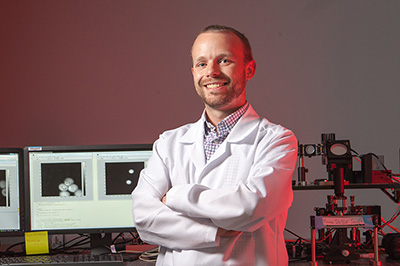Cancer

CANCER: A CONSTELLATION OF DISEASE/HNRC 4013H
WEDNESDAYS, 2-4:50 p.m., FALL 2017
In the United States in 2017, there will be more than 1.5 million newly diagnosed
cases of cancer, and nearly 600,000 will die from the disease. One out of three people
will be diagnosed with some form of cancer during the course of their life. Annual
expenses for the medical care of these patients will total more than $125 billion,
but even this staggering figure ignores the broader costs to society – financially
as well as socially.
Despite these daunting numbers, we are at the cusp of a revolution in the way we understand, diagnose, treat, and present cancer.
Cancer is not a single disease but rather, a bewildering constellation of various
classifications and subtypes. Any cell type in the body may lead to its own unique
form of cancer, and even two people with exactly the same type and stage of cancer,
treated in exactly the same way, may not have the same outcome. Despite these continuing
challenges, we have never understood the basic biology of cancer better than we do
now, and current research has led to great strides in the way we treat – and often
cure – many types of cancer.
There is however significant process to be made, scientifically as well as societally.
How do we allocate limited resources to combat cancer? Can we better treat patients
as a whole person, rather than just their disease? The enormous funding and attention
that cancer has received also raises concerns about the "cancer/industrial complex."
Are we as a nation prioritizing the right things when it comes to treating an aging
population? This course will explore these broad and complex issues that cut across
science, medicine, industry and society.  About Timothy Muldoon:
About Timothy Muldoon:
Timothy Muldoon’s research centers on the development of advanced optical imaging and spectroscopy tools to improve detection and clinical management of human disease, with particular emphasis placed on endoscopic imaging tools that improve detection and clinical management in gastrointestinal cancers. Another major research project is the development of a low-cost blood cell analyzer system, capable of providing important information to patients and clinicians in demanding environments within minutes.
In each of these projects, undergraduates work alongside graduate research assistants extensively, and four honors students have participated in peer-reviewed publications coming from this work. For more information visit his Translational Biophotonics and Imaging Laboratory website. Muldoon has mentored seven honors students since the biomedical engineering department was created in 2012. He serves as departmental honors coordinator, organizing an end-of-year, conference-style research symposium that gives each student a forum in which to present their work.
Muldoon’s research group was recently awarded a significant R15 grant from the National Cancer Institute for a project titled "The role of optical biomarkers in endoscopic detection and therapeutic monitoring of gastrointestinal cancer." He has received the Honors College Distinguished Faculty Award (2015) and Outstanding Teaching (2013) and Outstanding Service (2015) awards from the Department of Biomedical Engineering.